1.Wash your hands with soap and water to minimize your infection risk. The best way to prevent coronavirus is to wash your hands as often as possible. Wet your hands with warm water, then apply a mild soap. Work the soap into a lather for 20-30 seconds, then rinse your hands clean under warm running water.
- Always wash your hands before you eat or drink anything. However, it’s also best to wash your hands anytime you’re out in public or after you’re around someone you suspect may be sick.
2.Keep your hands away from your eyes, nose, and mouth. You may come into contact with the coronavirus on a surface, like a doorknob or countertop. When this happens, the germs can linger on your hands, so you can easily infect yourself if you touch your face with dirty hands. Avoid touching your eyes, nose, and mouth in case the virus is on your skin.
- If you need to touch your face, wash your hands first so you’re less likely to infect yourself.
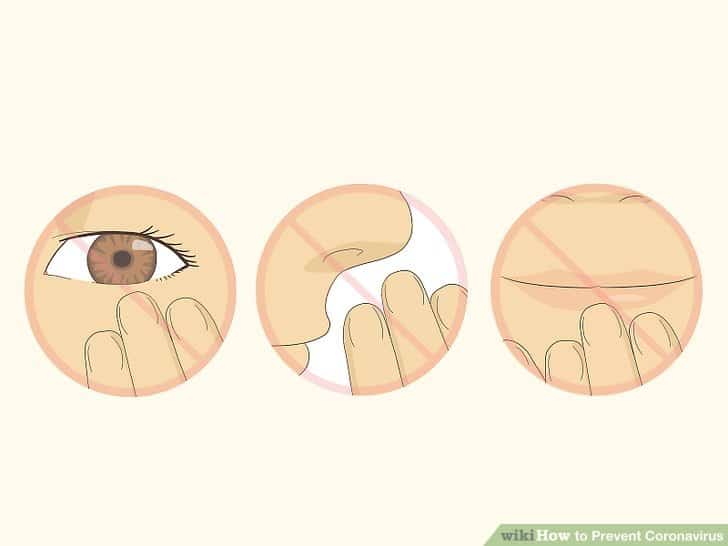
3. Stay away from people who are coughing or sneezing. Since coronavirus is a respiratory infection, coughing and sneezing are common symptoms. Additionally, coughing and sneezing both release the virus into the air, so they may increase your risk of infection. Keep your distance from people who appear to have symptoms of an upper respiratory infection.
- If it’s appropriate, ask the person to stay away from you. You could say, “I noticed you were coughing. I hope you feel better soon, but please keep your distance so I don’t get sick.”
4. Disinfect high-touch surfaces daily using a product that kills viruses. Unfortunately, coronavirus can linger on surfaces, such as doorknobs, countertops, and faucets. Use a spray disinfectant or bleach wipes to clean these surfaces daily. Make sure the surface stays wet for about 10 minutes so it effectively kills the virus. This limits the risk of the virus lingering on the surfaces and potentially causing an infection.[4]
- In your home, disinfect your front doorknob, kitchen counters, bathroom counters, and faucets.
- At work, clean surfaces that people tend to touch, such as doorknobs, stair railings, tables, and surface counters.
- You can also make disinfectant by mixing 1 cup (240 ml) of bleach with 1 gallon (3.8 L) of warm water.
5. Wear a disposable face mask while in public. Since coronavirus spreads through the air, it’s possible to breathe it in. Cover your nose and mouth with a disposable face mask to limit your risk of contracting the virus. Don’t reuse your masks because that can increase your risk of contracting coronavirus
- Always wash your hands after you remove your mask in case you encountered coronavirus. If you take off your mask and then immediately touch your face, you could become ill if the germs are present.
- If you’re at high risk for respiratory infections or have lung disorders like asthma or COPD, and you’re traveling internationally, wear a disposable mask on the plane to help prevent the spread of infection.
- Source: wikiHow
Other Tips:
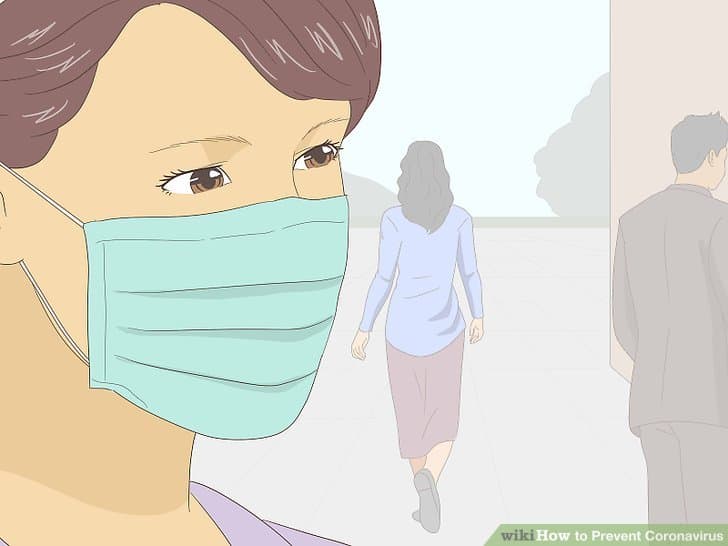
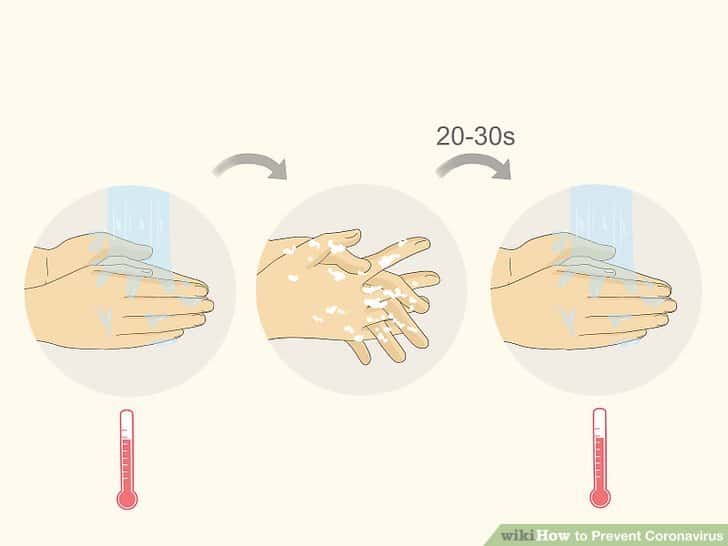
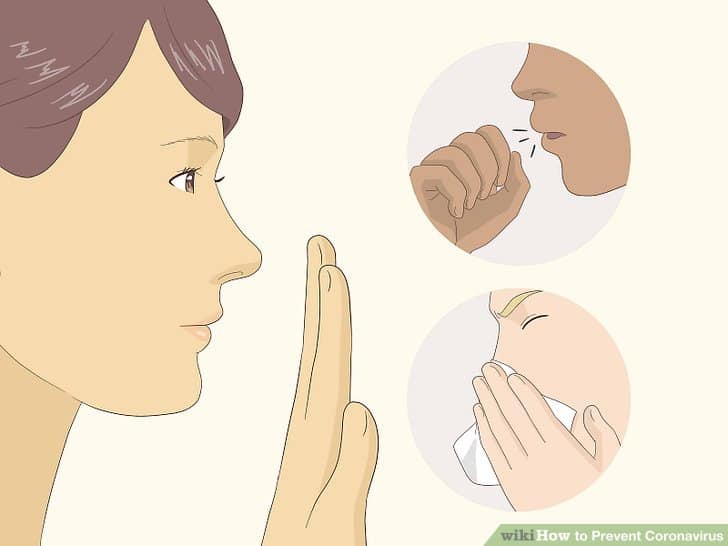
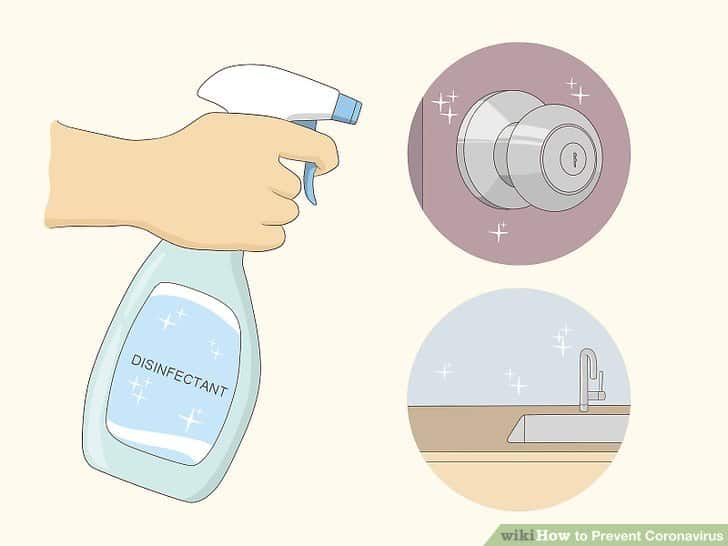
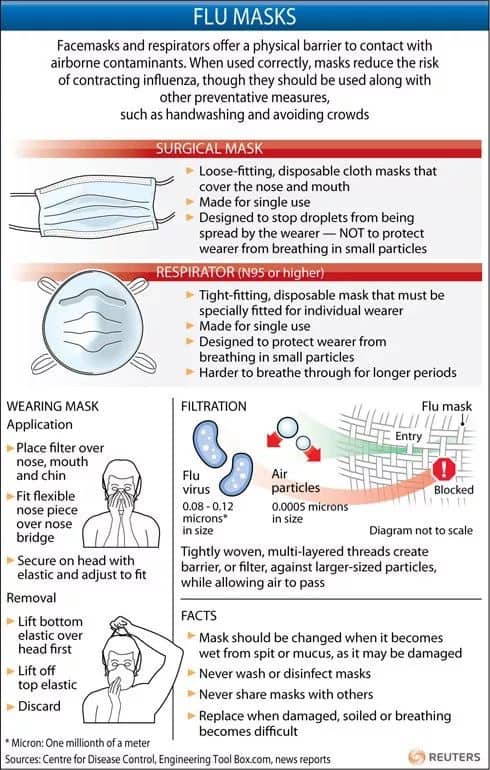




I’m physician from Brazil. I’d like to know news about this issue.